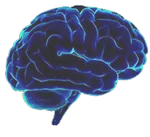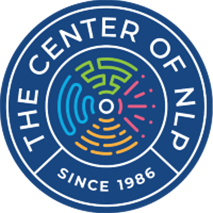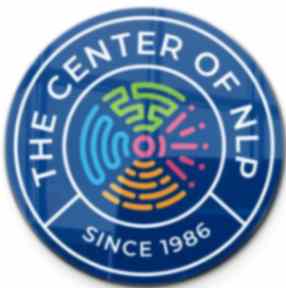CONTACT US info@centerofnlp.com
The Center of NLP
SUCCESS PATTERNS FOR LIFE
Flexibility, Strategy, Integrity, Mastery
What Everyone Should Know About Neuro Linguistic Patterns!
Neuro-Linguistic Programming (NLP) is a method of communication and personal development that focuses on the connection between the brain, language, and behavior. It aims to help individuals understand and utilize the connection between their thoughts, words, and actions in order to achieve their desired outcomes in life.
The NLP methodology is a success in a wide range of purposes such as personal development, therapy, coaching, and
business training. It is based on the idea that by understanding the way people process information and communicate,
we can improve our ability to influence and communicate with others

LEARN

Do

Have

LEARN

DO

HAVE
WHAT OTHERS ARE SAYING:
“The Practitioner Course was the best training I had in many years: in-depth and lots of hands-on practice for immediate implementation. This is a game changer in my life & business, simply because it will allow me to effectively communicate with so many more people of different values.”
MELISSA FREDERICKS,
Financial Advisor
“There are so many applicable tools I learned to use! These tools are assisting me to transform how I communicate and interact with my potential clients . I highly recommend the Practical Skills Course! You’ll learn a lot about yourself and how you will grow. It’s tremendous!”
PHOENIX SOHL,
Creative Director
“Brigitta… an advisor, a coach and an educator. Her contagious attitude, her continuous effort, and her active listening skills make her the successful leader that she is. She always strives to provide value to other people’s lives… she stands for accountability, compassion, and growth. Enjoy your journey with her!”
MICHAEL SILVERS,
Creative Director
THE NLP COURSE CALENDAR 2025
Past Events
✅ Mindboarding: January 2, 2025, 1:30 pm PST/2:30 pm MST/3:30 pm CST/4:30pm EST
✅ Concise Introduction to NLP: January 8, 2:30 pm PST / 3:30 pm MST / 4:30 pm CST / 5:30 pm EST
✅ Emotional Intelligence EQi2.0 Masterclass, tba: January and February 2025
✅ USPTO Project Management Training: January 14 - 23, 2025
✅ International Conference Locarno, Switzerland January 18, 2025
✅ Concise Introduction to NLP: February 5, 2:30 pm PST / 3:30 pm MST / 4:30 pm CST / 5:30 pm EST
✅ Introduction to EQi2.0: February 20, 2025, 2pm PST / 3pm MST / 4 pm CST / 5pm EST
✅ USPTO Human Communication Training: February, 2025
✅ Concise Introduction to NLP: March 5, 2:30 pm PST / 3:30 pm MST / 4:30 pm CST / 5:30 pm EST
✅Introduction to EQi2.0: March 20, 2025, 2pm PST / 3pm MST / 4 pm CST / 5pm EST
✅ 4 week Speaker Bootcamp, every Thursday April 3 - April 24th at 11:30am - 12:30pm est sync & async learning
✅ Concise Introduction to NLP: April 2, 2:30 pm PST / 3:30 pm MST / 4:30 pm CST / 5:30 pm EST
✅ AQ Adaptability Quotient - The Essentials to navigating change: April 10, 2025
✅ Introduction to EQi2.0: April 17, 2025, 2pm PST / 3pm MST / 4 pm CST / 5pm EST
✅ Concise Introduction to NLP: May 2, 2:30 pm PST / 3:30 pm MST / 4:30 pm CST / 5:30 pm EST
✅ AQ Adaptability Quotient - The Essentials to navigating change: May 8, 2025
✅ Meeting of the Kickstart Minds - June 7, 2025
Upcoming Events
• Two Hearts, One Rhythm: A Transformative Relationship Immersion, soon tba
• Introduction to EQi2.0: June 19, 2025, 2pm PST / 3pm MST / 4 pm CST / 5pm EST
• Meeting of the Culture Minds - July 19 - July 20, 2025 (A reverse Culture Mastermind)
• NLP Practitioner Course : August 2 - 5, 2025
• NLP ICF Level 2 Coach Training Certification: August 6 - 8, 2025
• The Culture Mastermind, Oktoberfest edition - September 27 - October 1, 2025
• The Culture Mastermind, Downunder edition - November 28 - December 1, 2025
Copyright 1989 - 2024 | The Center of NLP © | All Rights Reserved








